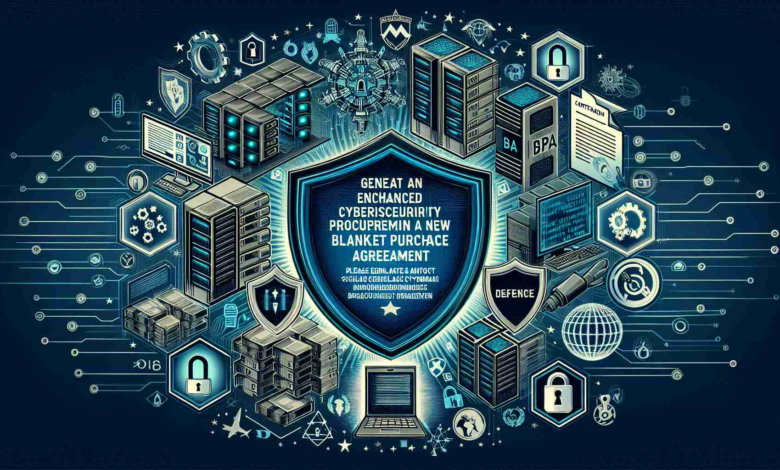Enhanced Cybersecurity Procurement for U.S. Defense through New BPA Initiative

PCi Tec, a notable technology provider, has recently become a pivotal player in a new strategy undertaken by the Department of Defense (DOD) to fortify its cybersecurity infrastructure. The company has secured a substantial blanket purchase agreement (BPA) spanning a potential 10 years. This strategic move falls under the Enterprise Software Initiative (ESI) BPA, which is aimed at providing the DOD with advanced cybersecurity software while ensuring fiscal efficiency.
This newly minted BPA is not just a contract but a beacon of progress in securing national defense mechanisms. Particularly in an era where digital threats are ever-increasing, PCi Tec’s role becomes crucial as the company now stands as an authorized supplier for pivotal IT brands like BOX, Denodo, CloudBees, and Sonatype within the DOD’s procurement framework.
Rosina Kling, at the helm of PCi Tec as president and CEO, expressed a blend of pride and responsibility upon securing the contract, acknowledging the importance of timely and cost-effective cybersecurity solutions to protect America’s defense operations.
In essence, the EIS BPA represents a concerted effort to streamline the DOD’s acquisition of IT commodities. By consolidating procurement under structured terms, the DOD aims to cut through administrative red tape and cost barriers. With a five-year base term complemented by incremental one-year options, the BPA indicates a long-term commitment to maintaining the integrity of the country’s information systems against an evolving digital threat landscape.
The Importance of Cybersecurity in the Defense Industry
As exemplified by the partnership between PCi Tec and the Department of Defense, cybersecurity holds paramount importance within the defense industry. This industry is not merely deployment and weapon systems; it is increasingly becoming synonymous with cutting-edge technology, reliant on software, networks, and digital services. Given the sophisticated level of threats that nations face today, with state and non-state actors capable of launching high-level cyberattacks, ensuring the integrity and resilience of defense cybersecurity frameworks is not just a matter of national security but also of global stability.
Market Forecasts for Cybersecurity in the Defense Sector
The defense sector’s cybersecurity market is expected to grow significantly over the coming years. According to market research, this growth is driven by an increase in cyber threats, the growing prevalence of cloud-based services within defense operations, and stringent government regulations requiring robust security measures. These factors push governments and private defense contractors alike to invest heavily in cybersecurity solutions.
Considering this surge, entities like PCi Tec are positioned to benefit from the expanding demand for cybersecurity solutions. Their role in delivering and managing software for the DOD under the BPA is just one example of the industry’s growth trajectory.
Issues and Challenges in Defense Cybersecurity
Despite the proactive strides being made, the defense cybersecurity industry faces several challenges. These include the ever-evolving nature of cyber threats, the need for rapid innovation to stay ahead of adversaries, and the challenge of integrating cybersecurity solutions across various legacy systems within the military. Moreover, there is a continuous struggle for skilled cybersecurity professionals, which adds to the complexity of adequately defending against cyber threats.
Furthermore, the integration of emerging technologies such as artificial intelligence (AI), machine learning (ML), and the Internet of Things (IoT) into defense infrastructure introduces additional layers of potential vulnerabilities that must be secured against an adversary’s exploitation.
Additional Resources
For those interested in further exploring the cybersecurity market, including the latest trends, forecasts, and thought leadership pieces, the following Gartner link offers a wealth of information. Another credible source for defense industry news and insights can be found at Defense News. These resources can provide a broader context for the implications of agreements like the ESI BPA and the vital role companies like PCi Tec play in national defense.
To conclude, the alliance between PCi Tec and the DOD signifies a broader trend in the defense industry towards sharpening cybersecurity capabilities. The BPA under the ESI signals a marked shift in prioritizing robust, efficient procurement of IT services and commodities, reflecting the critical nature of cybersecurity in preserving national and global security in the digital age.

Igor Nowacki is a fictional author known for his imaginative insights into futuristic technology and speculative science. His writings often explore the boundaries of reality, blending fact with fantasy to envision groundbreaking inventions. Nowacki’s work is celebrated for its creativity and ability to inspire readers to think beyond the limits of current technology, imagining a world where the impossible becomes possible. His articles are a blend of science fiction and visionary tech predictions.



